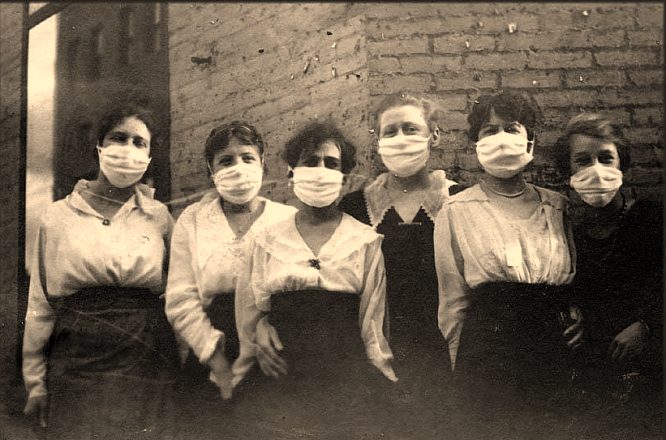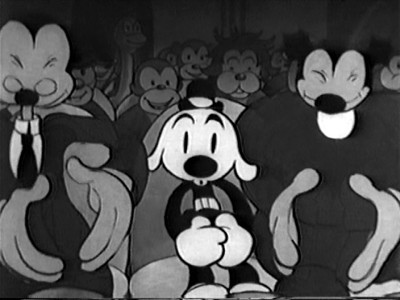
If you believe that there's no hope, you guarantee that there's no hope.
This is one of the early Chomsky maxims that caught my young, evolving eye, back when I moved from pursuing comedy to learning about and working against the corporate media. It became a mantra of sorts, a necessary reminder that if I, on stage, on the page, in a small circle of people, didn't reflect this idea in my actions, then why would those to whom I was speaking?
Recently, while going through yet more old boxes in a slo-mo attempt to streamline my files, I discovered dozens upon dozens of letters from event organizers, radio and TV hosts, activist groups, and numerous individuals, all responding to talks I gave, debates I participated in, meetings I attended, and it was interesting to read how positive and upbeat I seemed to many different types of people at the time. They were inspired by whatever it was I said -- Central America and the Middle East the main subjects -- and pledged to apply this inspiration to their respective efforts. (I also raised money for FAIR, which I represented more times than not.) It brought back a variety of feelings, not all of them good (another story), but overall it seemed as if I was reading about another person, someone who passed from this plane long ago.
Late Saturday night, I happened to catch Noam on Book TV, from an event taped last week. Noam has slowed, obviously, but his main message remains the same as it was when I first heard him speak in 1986: those of us privileged enough to have the means to communicate possess a unique opportunity to affect positive change. It's simply our choice. During the Q&A, Noam was hit with a few negative remarks, that this is a horrific time, and how can anyone feel at all optimistic about the future, assuming that a future even exists, etc. Noam conceded that, yes, times are very bad for a great number of people, but conversely, there are more openings to address and hopefully mitigate these dreadful conditions. It's all where you place your desires.
What Noam was saying is certainly true, that we are limited to the degree we choose to limit ourselves (external conditions notwithstanding). But it appeared that the audience wasn't quite buying it, not like they did when Noam roamed the Earth. I'm not even sure how much of this Noam himself truly believes. It comes off so automatically, like a switch he clicks on when certain stimuli appear. I haven't spoken to Noam in years, but when I did, he was no stranger to dark prognostication. Being the young optimist I mostly was then, some of his bleakness surprised me, but also alerted me to rougher waters I had yet to encounter. In any event, whatever his actual beliefs, Noam kept singing "Don't Stop Believin'" to the crowd until he checked his watch and bid adieu.
As always during his talk, Noam compared historical periods to prove his contention that the U.S. is a much more civilized place than it was when he was growing up during the Depression and through World War II. Again, he made irrefutable points, especially when it comes to social interactions, as well as a wider awareness of how the world actually works, as opposed to the fantasy endlessly screened for our amusement. But for the first time in some time, I noted slippage in his approach. Contrasting the Vietnam war era with our current terror world, Noam noted that back then, the U.S. could carpet bomb Southeast Asia, and for many crucial years, did so without significant protest. That's no longer the case. As bad as Iraq is, the U.S. is not terrorizing that country as it did Vietnam and Cambodia, and that public awareness of and opposition to such brutal war tactics has a lot to do with this reality. Thus, in a weird way, the invasion of Iraq is not as awful as it might've been had the public simply not cared.
While it's true that public opposition to the Vietnam war had some effect, however late the large protests formally arrived, the only serious opposition the warmakers paid attention to was on Wall Street. By 1968, major sectors in the American corporate world had turned against what was a money-losing enterprise, and this imperial pessimism began to spread throughout the U.S. elite, from boardrooms to newsrooms to finally the White House, as a steady withdrawal of U.S. troops commenced in the early-1970s. And let's not forget that the Vietnamese themselves played a rather significant part in thwarting American war aims, at great loss to them and to their country. Set against this backdrop, marchers in the streets were at best a distant third in the running.
Also, as time goes on, imperial strategies change, depending on need and the region under consideration. Today's American war machine doesn't need to carpet bomb a country as it did 40-plus years ago. For one thing, the weapons are much different and pack a stronger punch. For another, the present global wars have less to do with ideology (to the degree that ideology was ever a serious factor) and much more to do with resources and geopolitical positioning. Of course the U.S. isn't carpet bombing Iraq as it did Vietnam: the whole point to the occupation is to "stabilize" the energy reserves and bring them under Western corporate control. Why destroy what it is you most covet? Public pressure has nothing to do with that. Indeed, U.S. elites ignored the millions who opposed the Iraq invasion to begin with. Now, suddenly, they care what the average person thinks? I don't know why they would, outside of marketing studies and poll taking, given the utter collapse of whatever "antiwar" movement once existed.
I do agree with Noam that people should continue to hope, and act on this hope, but only if it's part of a wider, critical perspective. Sadly, in this country, "hope" is a simple brand that increasingly belongs to Saint Obama, who spreads it around with an evangelical smile. Even sadder still, too many "progressives" buy into Obama's brand, dancing behind him with pixie dust in their eyes, being led right to where the war makers want them. If I were an Iraqi, an Iranian, or especially a Palestinian, I wouldn't be feeling terribly secure about the near future.










